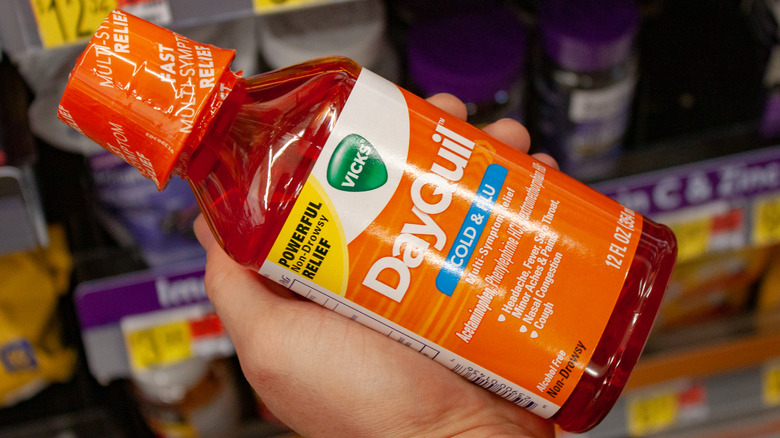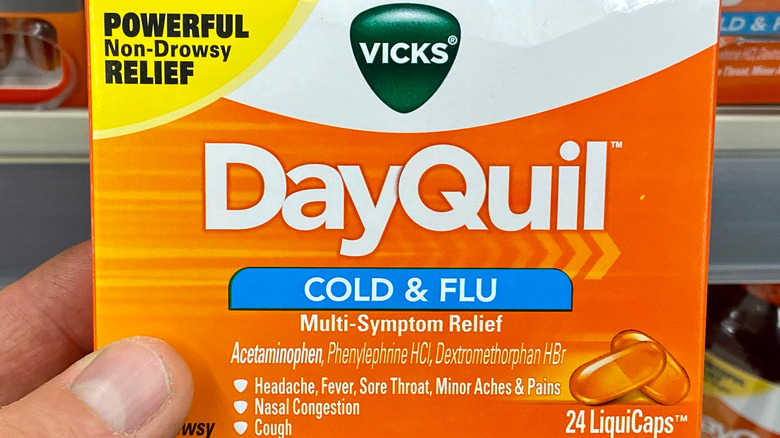When You Take Too Much Dayquil, This Is What Happens
Dayquil is an over-the-counter combination medication used to treat the common cold and the flu. Available in capsule or liquid form, Dayquil is often used to temporarily relieve cold and flu symptoms during the day, including fever, cough, aches and pains, sore throat, and headache (via Healthline). Unlike Nyquil, however, Dayquil doesn't cause drowsiness or induce feelings of sleepiness. That's because it doesn't contain doxylamine — an antihistamine that can also be used as a nighttime sleep aid.
Instead, the main active ingredients in Dayquil are acetaminophen, dextromethorphan, and phenylephrine. Dextromethorphan acts as a cough suppressant, while phenylephrine works as a nasal decongestant. Acetaminophen, on the other hand, can help relieve pain and reduce fever. For people 12 years and older, the average recommended dose is two capsules or 30 milliliters every four hours for no more than four times a day. But what happens if you accidentally exceed this dosage?
Can you overdose on Dayquil?
As it turns out, taking too much Dayquil can wreak havoc on your health. While the acetaminophen in Dayquil is effective at treating cold and flu symptoms, consuming too much can result in an overdose (via Verywell Health). Common symptoms of an acetaminophen overdose include abdominal pain, confusion, blurred vision, nausea or vomiting, rapid heart beat, dizziness, anxiety, and labored or shallow breathing.
Accidental misuse or overuse of acetaminophen and Dayquil can also lead to liver damage. That's because acetaminophen is processed by the liver. Although the liver is able to break down most of the drug, small traces of it are left behind (via Harvard Health). This can add up steadily if you consume an excessive amount of acetaminophen in a short period of time or on a regular basis.
Since acetaminophen or Dayquil overdoses most often occur when people don't read or disregard the dosage label or take multiple cold and flu medications at once, they can easily be avoided by taking no more than the recommended dose and not mixing it with other medications.


